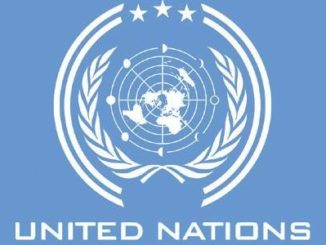
After militants with AK-47 rifles and suicide explosives vests shattered the peaceful revelry of Paris on Friday night, November 13, killing dozens of civilians in restaurants and at a concert hall, France seemed intent on sending a clear message of its determination to curb the Islamic State and its ability to carry out attacks outside the territory it controls.
Islamic State has claimed responsibility for Friday’s suicide bombings and shootings.
The revelations that at least four French citizens were involved in the attacks — three brothers and a man who lived around Chartres, about 60 miles southwest of Paris — seemed certain to exacerbate longstanding fears in France about the place of Muslim immigrants and converts in French society.
Even before the latest violence, the nation was still reeling from a smaller set of deadly attacks on the satirical newspaper Charlie Hebdo, at a kosher grocery and against a police officer only 10 months earlier.
HOLLANDE ADDRESSES PARLIAMENT
“Friday’s acts of war were decided and planned in Syria. They were organized in Belgium and perpetrated on our soil with French complicity with one specific goal: to sow fear and to divide us,” Hollande told Parliament in a rare joint session convened at the Palace of Versailles.
“Syria has become the biggest factory of terrorism the world has ever known and the international community is still too divided and too incoherent.”
As he spoke, thousands gathered around candlelit memorials at the Place de la Republique square and beneath the Eiffel Tower, which like many top attractions in one of the world’s most-visited cities reopened for business Monday in a defiant spirit. The tower was bathed in red, white and blue floodlights of the French tricolor, with the city’s centuries-old slogan — “Tossed but not sunk,” suggesting an unsinkable city braving stormy seas — projected in white lights near its base.
ATTACKERS NAMED
France identified a 27-year-old Belgian who once boasted about killing “infidels” and fought for the Islamic State group in Syria as the mastermind of the Paris attacks, and President Francois Hollande vowed Monday to forge a united coalition capable of defeating the jihadists at home and abroad.
Addressing lawmakers after France observed a minute of silence honoring the 129 people killed and 350 wounded, Hollande said the victims came from at least 19 nations, and the international community, led by the United States and Russia, must overcome their deep-seated divisions over Syria to destroy Islamic State on its home turf.
French and other Western intelligence agencies face an urgent challenge to track down the surviving members of the three Islamic State units who inflicted the unprecedented bloodshed in France and, perhaps more importantly, to target their distant commanders in IS-controlled parts of Syria.
Police have also named other attackers: Ismael Omar Mostefai, 29, from Chartres, southwest of Paris. He was identified by the print from one of his fingers that was severed when his suicide vest exploded.
French media named the two other French assailants as Bilal Hadfi and Ibrahim Abdeslam.
Police said they had found a Syrian passport near one of the other dead gunmen. Greece said the passport holder had crossed from Turkey to the Greek islands last month and then registered for asylum in Serbia before heading north, following a route taken by hundreds of thousands of asylum seekers this year.
French police have used emergency powers to conduct 168 searches since Sunday night that netted 127 arrests and 31 weapons.
World Response
President Obama and other world leaders, including President Vladimir V. Putin of Russia, gathered at a summit meeting in Turkey, grappling with how to respond to the Islamic State, the civil war in Syria and the mass emigration from the region toward Europe.
The Islamic State has also claimed responsibility for the downing of a Russian passenger jetliner over Egypt, killing all 224 people aboard, intensifying concerns that the group’s reach and ambitions for sowing terror are expanding.
France was the first European state to join US air strikes against Islamic State targets in Iraq, in September 2014, while a year later it extended its air strikes to Syria. Russia began its own air campaign in Syria in October, but has been targeting mainly areas controlled by other groups opposed to its ally, President Bashar al-Assad, Moscow’s critics say.





Be the first to comment